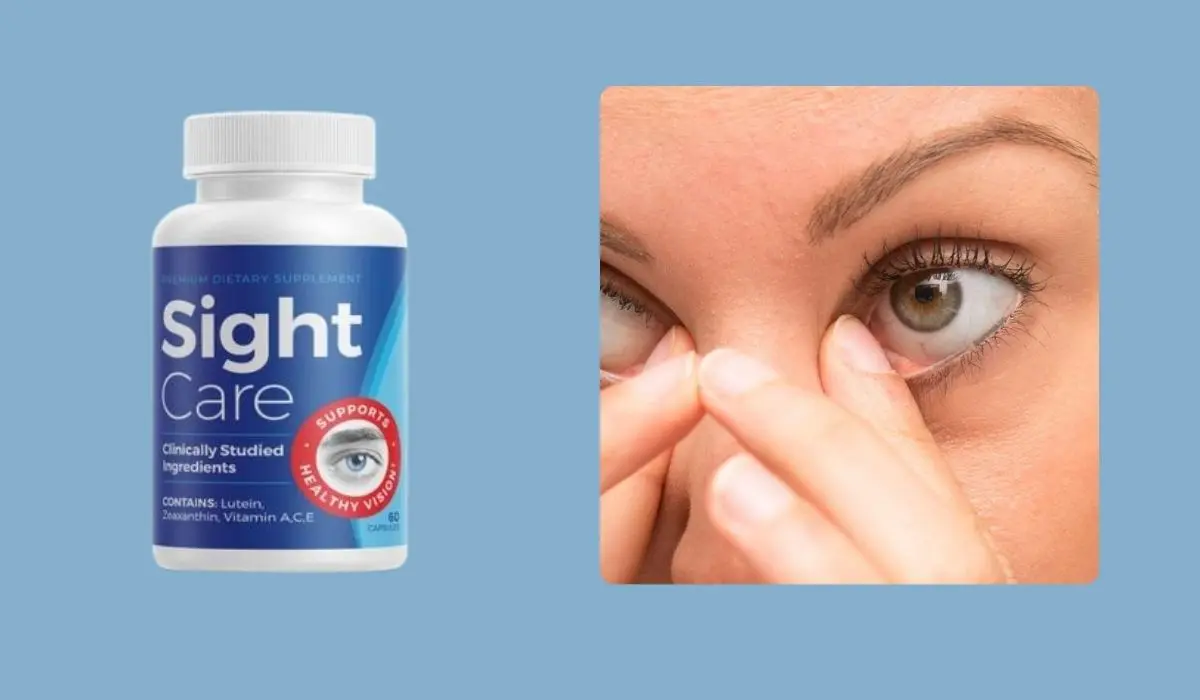Eye health is crucial for everyone as it helps us perform our daily tasks, be it driving, learning, watching, athletic ability, or more. Eyecare is important to prevent eye diseases, permanent vision loss, and blindness. Also, we should make sure to get early treatment because if not, it can lead to complete vision loss. Poor eyesight affects the quality of our lives, so protecting it from diseases is essential for survival. Around 36% of people globally struggle with impairment.
Types of eye diseases include age-related macular degeneration, refractive errors, cataracts, glaucoma, color blindness, diabetic retinopathy, and more. Most eye injuries can be a result of accidents, sports injuries, foreign objects in the eye, chemicals, fumes, contact lenses, and more. Also, many eye problems are caused by our carelessness. There are plenty of eye treatments available these days. Surgeries, lasers, transplants, glasses, medications, and more. However, choosing the right treatment is crucial as it is a matter of our eyes and overall health.
What Is Blurry Vision In One Eye?
Blurry vision in the eyes is called optic neuritis. So, what does blurry eyesight look like? It gives blurry sight, pain when moving the eyes, and loss of color vision. Squinting the eyes might help see better, and it might feel like you are looking into a haze or fog.
Things might get out of focus, and will be hard to see anything clearly. Blurry vision likely causes headaches, eye pain, and halos around lights. In some cases, if this blurry vision is not treated, it may lead to permanent vision loss. Cataract is a condition that causes cloudy vision.
Our lens is usually clear, but cataracts make it seem like we are looking into a foggy atmosphere. The early stage of cataracts can be treated using anti-glare glasses, magnifying glasses to read, and brighter lights indoors.
Fuchs’ dystrophy, macular degeneration, and diabetic retinopathy are other common causes of cloudy vision. However, one shouldn’t be worried about occasional or slight cloudy vision, but it will need medical attention if the blurriness lasts more than a day or two. Foddy vision might not be a thing at first, but can get worse over time. So, if you detect any symptoms, make sure to consult the doctor before it is too late.
Causes Of Blurry Vision In One Eye
The causes of blurry vision can vary. It can be due to refractive errors, and this condition happens when the light entering the eye is not focusing correctly on the retina. This causes to have blurred images that are not sharp and clear. Eye injury or trauma also paves the way for blurred vision in the eye.

Different parts of the eyes may be damaged in an injury, and eye trauma leads to corneal abrasion, which results in the rubbing off of the surface layer of the cornea. Sudden blurriness can happen when there is a problem with the optic nerve after a trauma occurs.
Age-related eye conditions like cataracts and macular degeneration are another reason for blurry vision in one eye. As we age, we lose cells in the retina, leading to AMD (age-related macular degeneration). As a result, we end up having blurred and distorted central vision. Also, AMD damages the ability to see fine details.
Neurological conditions and vascular conditions also affect the eyesight and lead to blurriness in the vision. Brain injuries and impairment in the coordination of the eyes cause vision problems. Damage to the brain, which can be from stroke or multiple sclerosis, drastically affects sight. Also, damage to the blood vessels can swell and leak, which causes blurry vision and poor blood flow.
The optic nerve connects the eyes to the brain, and our sight relies on the optic nerve to transmit information. However, inflammation or infection of the optic nerve causes blurred, grey, and dim vision. These are the common causes of blurriness in the eye, and getting the right treatment is necessary to prevent permanent vision loss.
Symptoms And Diagnosis
The common symptoms seen among those struggling with blurry vision are headaches, eye pain, sensitivity to light or flashing lights, red or irritated eyes, and visual disturbances. One also experiences double vision, blind spots, halos, floaters, and tunnel vision. Vision distortion causes a gradual loss and blurring of vision, which leads to straight lines appearing wavy or broken.
Sudden vision changes may be due to a serious underlying problem, and make sure you get immediate treatment. If the blurred vision is accompanied by loss of balance, dizziness, weakness, or slurred speech, head to the hospital as soon as possible. Remember, it is crucial to get the right medical care at the right time to prevent blindness.
Diagnostic tests and procedures for eye problems include eye exams, imaging tests, and blood tests. They include angiography, ultrasonography, optic coherence tomography, and electroretinography. Also, there are color vision tests, electro-diagnostic testing, and corneal topography to assist in detecting eye problems and treating them.
It is to be noted that blurred vision is different from double vision, floaters, and other eye problems. Blurred vision mostly affects only one eye, and the objects seem unclear. Often, this case does not require medical attention. However, double vision and other conditions affect both eyes and are a serious issue.
Treatment Options
There are plenty of blurry eye treatments available today, but regular checkups, leading a healthy lifestyle, a healthy diet, quitting smoking, and protecting the eyes from hazards are some natural ways to treat blurry vision. Also, there are glasses, contact lenses, eye drops, lasers, eye surgeries, and medications.
Health experts suggest glasses and contact lenses for refractive errors, medicines and eye drops for glaucoma and infections, and surgeries for cataract removal and corneal transplant. Also, lifestyle modifications like dietary changes and quitting smoking are promoted to see effective results in eye health improvement.
A few natural ways to treat blurry vision in one eye include lubricating the eyes, protecting the eyes, taking vitamin A, stopping smoking, and improving air quality. Blurry vision in one eye can be treated using glasses, contact lenses, and surgery.
Often, the blurry vision is temporary and gets resolved without any treatment. But if you notice serious symptoms, then make sure you get the treatment for it fast. Following a comprehensive treatment plan helps improve the overall quality of life and prevent total blindness. Also, detecting eye problems at the earliest is necessary to treat them effectively and eliminate severe eye disorders.
Introducing Sight Care
Among various eye care treatments, Sight Care is one of the most effective and proven supplements to improve eye health naturally. This formula supports healthy eyesight, helps maintain night vision, and provides nutrition to the eyes. This supplement contains clinically studied ingredients to attain long-lasting good vision, boost energy levels, and promote overall health. Sight Care not only helps treat eye problems but also supports a healthy brain, liver, and visual acuity. Sight Care contains ingredients like niacin, bilberry fruit, zeaxanthin, eyebright, n-acetyl cysteine, lutein, and quercetin.
Also, this eye formula comes as easy-to-use veggie capsules that are free of chemicals, toxins, and stimulants. Sight Care for blurry vision is manufactured following all safety standards in strict, sterile, and precise working facilities approved by the FDA and certified by the GMP.
This supplement ensures the safety of the users and provides faster results by addressing the root cause of the problem. Also, the users of Sight Care claim that this supplement works for everyone regardless of age. They also state that Sight Care is more convenient to use, causes no side effects, and unlike other expensive treatments, this supplement is affordable.

Prevention And Lifestyle Modifications
Lifestyles matter when it comes to maintaining overall health. Having regular eye checkups, following a healthy diet, wearing protective eyewear, limiting screentime, maintaining a healthy weight, getting enough sleep, quitting smoking, maintaining healthy blood sugar levels, avoiding direct sun exposure, cleaning hands before using contact lenses, consuming necessary vitamins to boost eye health are some natural ways to prevent eye problems. Lifestyle modifications are a great deal when it comes to health. To take care of our eyes, we should build a healthy lifestyle first.
User Experiences
When looking at the user experience regarding the Sight Care supplement, the feedback is positive, and the users seem to find the supplement very effective. From the customer feedback, we know that the users seem impressed with this supplement due to its ease of use and because it causes no side effects or allergies.
Since Sight Care follows all safety protocols be it in terms of ingredient quality or manufacturing standards, no side effects or complaints have been reported so far. Thus, the Sight Care reviews the users give are positive and have high customer ratings.
Expert Insights And Recommendations
Experts state that blurry vision in one eye may be caused by refractive errors, migraine, cataracts, infections, injuries are more. Ophthalmologists and optometrists recommend taking natural supplements like Sight Care to treat eye problems effectively.
This supplement not only addresses one problem but works to improve overall vision and prevent all types of eye problems. Also, the experts are against self-treatment as it may be harmful. We may not know the depth of the problem, and lack of professional treatment might worsen the disease.
Final Verdict
Considering all the facts, I think natural supplements like Sight Care are a better option than harmful and expensive lasers, transplants, or surgeries. The reasons for eye problems can vary, but getting the right treatment matters the most. When there are supplements like Sight Care, we needn’t be worried as it works without causing any side effects or allergies.
It seems like a safer option as it contains only natural ingredients and is FDA-approved and GMP-certified. This supplement promotes overall health while treating the underlying cause of eye problems. Also, remember to consult with the eye professionals for proper diagnosis and treatment and avoid self-treatments as they may be harmful.
FAQS\s
Yes, an unhealthy lifestyle contributes to eye problems like blurry vision. Smoking, unhealthy food habits, too much screen time, and lack of exercise also pave the way for blurry vision and other eye problems.
Mostly, blurry vision affects only one eye. Make sure you see the doctor as it may be a sign of a serious eye condition.
Often, blurry vision is a common condition, and in most cases, it is not a medical emergency. However, if the symptoms are serious and the blurriness does not go away, make sure you see the doctor soon.
Well, the exact number is unknown, and some people experience it suddenly and go away fast. However, for some people, it lasts for a longer time and even for weeks.
Sight Care seems like a better solution to treat eye issues as it focuses on enhancing eye health naturally. Sight Care is more affordable, contains natural ingredients, provides faster results, and follows all safety protocols. So, considering all these facts, this supplement does seem like a legit solution.
References
- WebMD(2005-2022) How to Keep Your Eyes Healthy Available [Online] at: https://www.webmd.com/eye-health/good-eyesight
- FDA US FOOD AND Drug ADMINISTRATION (n.d) 7 Tips for Using Contact Lenses Safely Available [Online] at: https://www.fda.gov/medical-devices/contact-lenses/everyday-eye-care
- National Library Of Medicine (n.d) Nutrition and Eye Health Available [Online] at: https://www.ncbi.nlm.nih.gov/pmc/articles/PMC6771137/